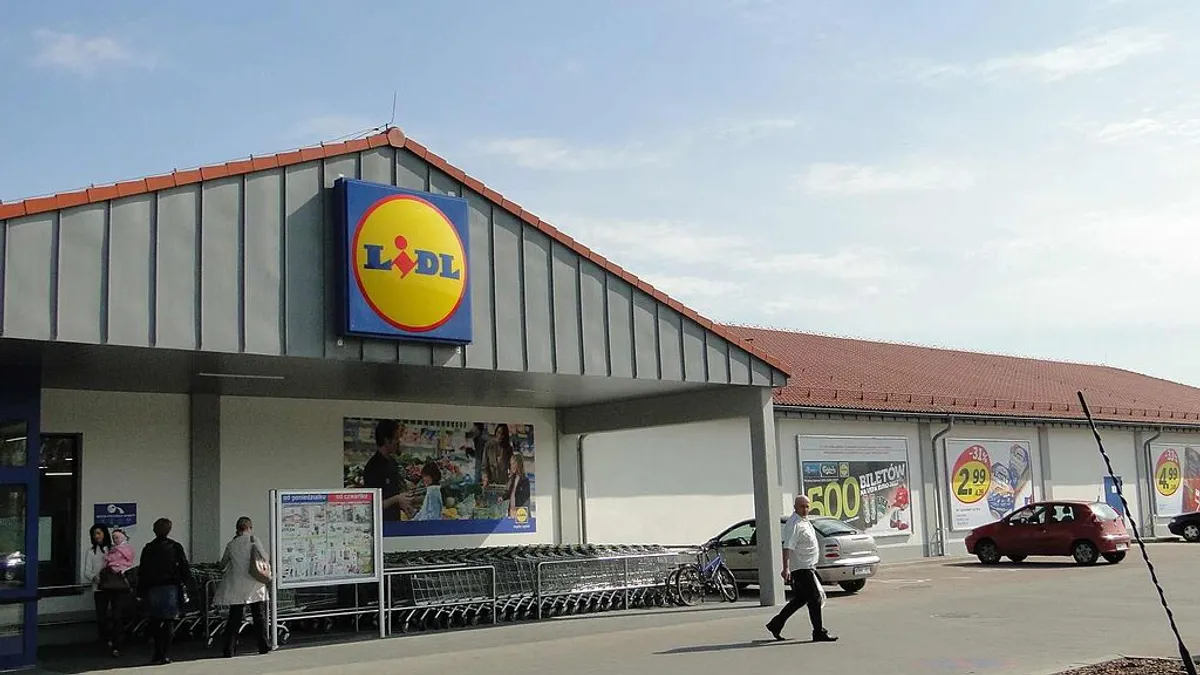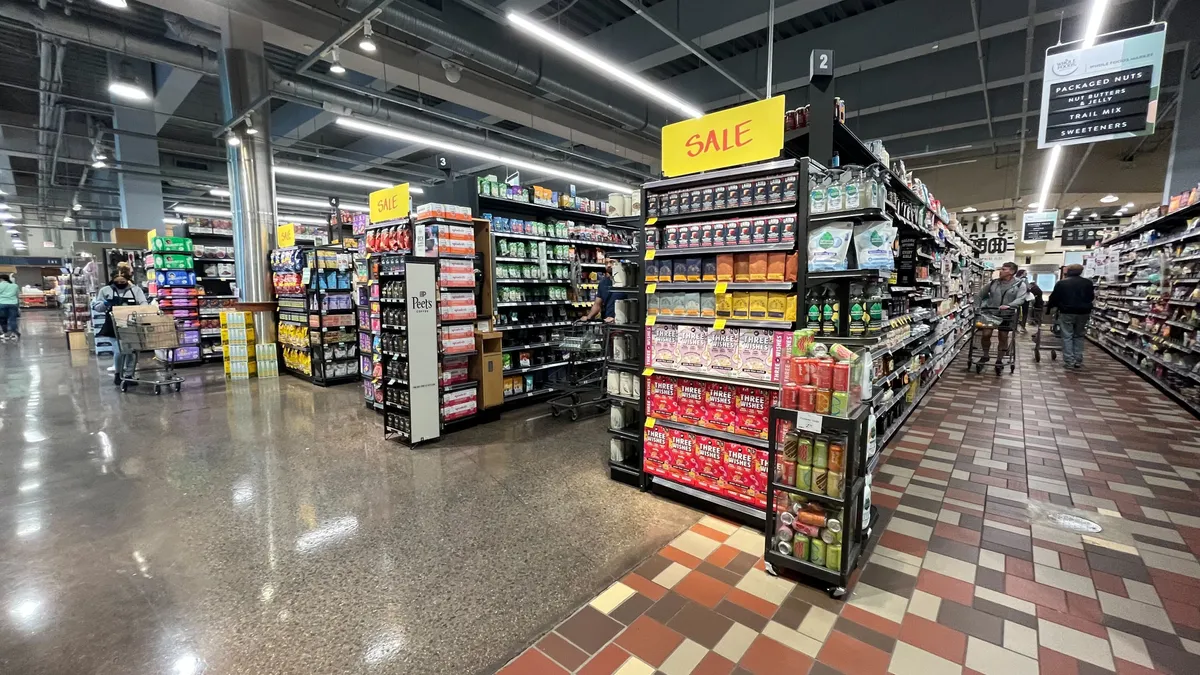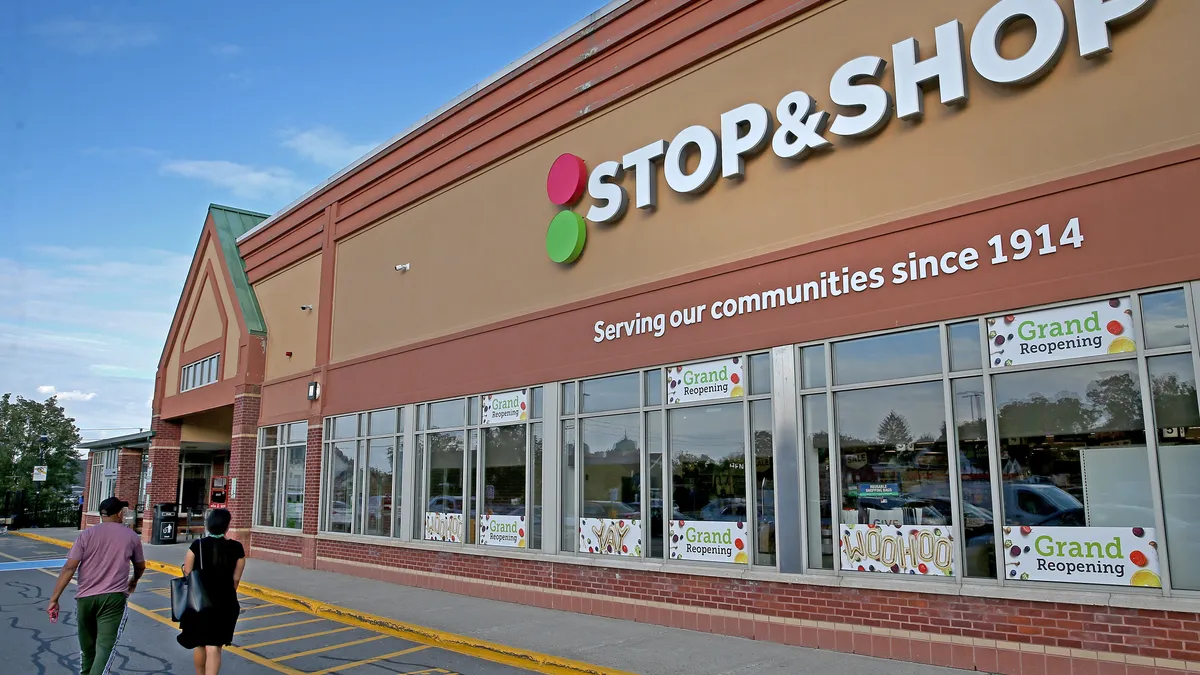Dive Brief:
- Lidl’s pared-down approach to retailing is something grocers could emulate, given slow sales in many categories and an oversaturated market, according to MediaPost.
- Lidl’s discount prices and focus on private label brands has made it a dominant retailer in Europe. In the U.S., the column notes, its approach is most comparable to Trader Joe’s.
- MediaPost noted that having a wide selection of products certainly hasn’t helped retailers like Macy’s, which plans to shutter 15% of its stores.
Dive Insight:
Lidl’s pared-down approach to retailing makes a lot of sense. Instead of twenty aisles, the German retailer’s stores will only have six. And rather than stock numerous brands within each category, the company will curate its selection and offer shoppers two or three high-quality, low price products that will negate their need to choose.
Study after study has shown having more products to choose from isn’t necessarily a good thing. Oftentimes, it leaves shoppers unable to decide. And yet, many consumers are very brand loyal, and at the same time enjoy having a variety of choices on hand. It's what they're used to. They want their brand of ketchup, but they also want to know that they could easily switch brands if they so desired.
Lidl’s approach makes sense — but does it make too much sense? Might it be an overly rational attempt to entice a not-always-rational American consumer? Ten years ago, Tesco opened Fresh & Easy in the western U.S. with a vision of building a chain of small, affordable, fresh-focused stores. The idea seemed perfectly sound, but consumers were turned off by the company’s private label focus and stripped-down environment. After just six years in business, Fresh & Easy filed for bankruptcy.
Of course, Fresh & Easy also had serious problems with distribution and management. And consumers’ attitudes toward private label foods have come a long way during the past decade, largely thanks to grocers such as Trader Joe’s, Kroger and Safeway that have elevated their store brand selections. Research also shows consumers are migrating away from national brands and are overall more open to trying new products.
Ultimately, Lidl’s success may come down to execution. Can it offer products that not only pique consumers’ interest, but that deliver on great taste, value and quality? The company has made some big promises, and says it will do no less than redefine the grocery industry. Can it deliver? The industry will find out on June 15th.










